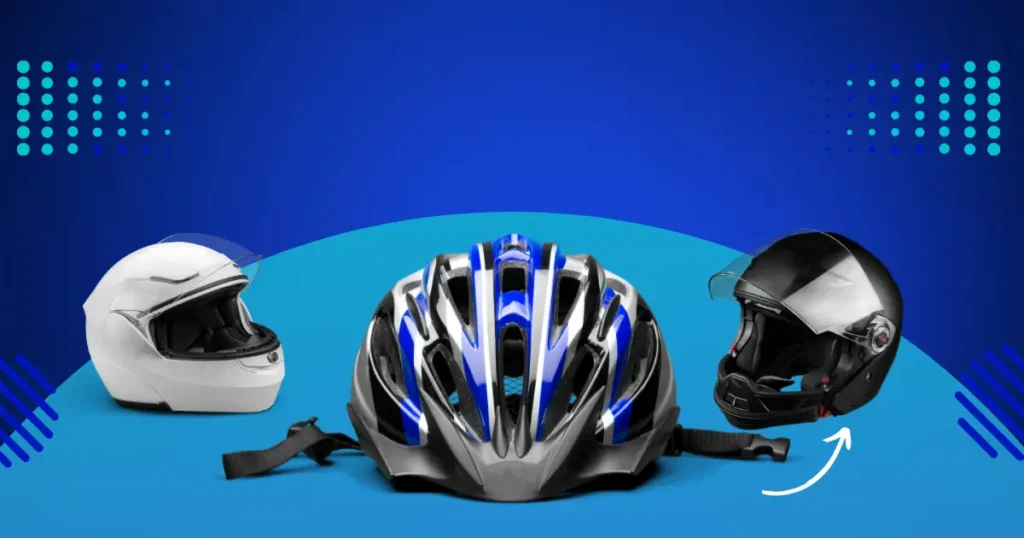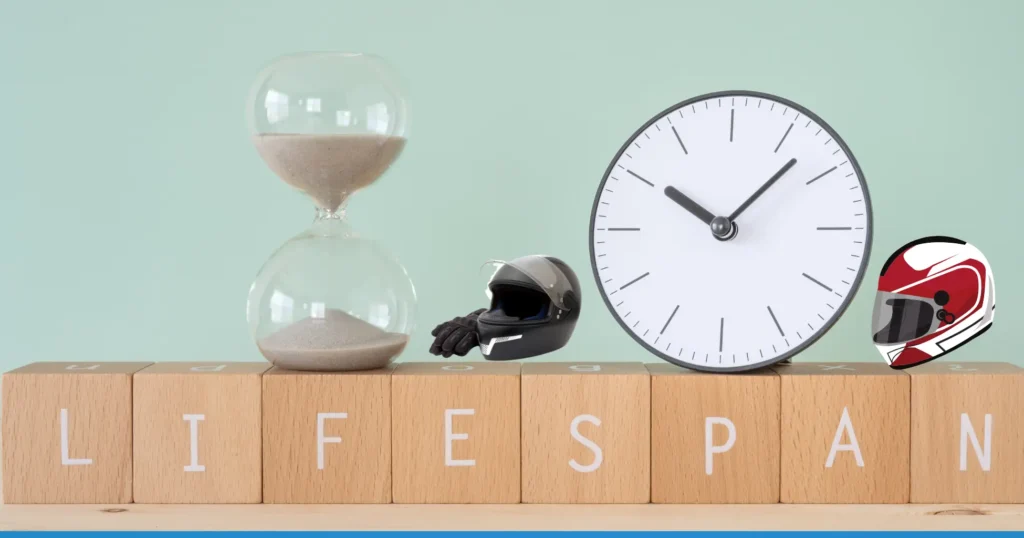Can motorcycle helmets be recycled? Motorcycle helmets are a crucial safety gear for riders, but they have a limited lifespan. Once a helmet reaches the end of its life, disposing of it responsibly becomes a challenge. This article explores whether motorcycle helmets can be recycled, the recycling challenges, and alternatives to landfilling them. We will also discuss responsible disposal practices and eco-friendly alternatives.

Table of Contents
- Introduction
- Motorcycle Helmet Disposal
- The Recycling Challenge
- Alternatives to Landfill
- Responsible Disposal
- Finding Eco-Friendly Alternatives
- Conclusion
- FAQs
Introduction
Motorcycle helmets save lives by protecting riders’ heads during accidents. However, they need to be replaced periodically, either due to damage or simply because they have reached the end of their lifespan. This raises an important question: can motorcycle helmets be recycled? In this article, we’ll dive deep into the complexities of helmet recycling, explore various disposal methods, and highlight eco-friendly alternatives to help you make informed decisions about disposing of your old helmet.
Motorcycle Helmet Disposal
Disposing of motorcycle helmets responsibly is critical to reducing environmental impact. Understanding when and why helmets need to be replaced is the first step.
Understanding Helmet Lifespan
Motorcycle helmets are designed to absorb impact and protect the rider’s head. However, they are not built to last forever. The average lifespan of a motorcycle helmet is around five years. Factors like UV exposure, sweat, and general wear and tear can degrade the helmet’s materials over time.

Signs It’s Time to Replace Your Helmet
- Visible Damage: Cracks, dents, or severe scratches indicate compromised structural integrity.
- Age: Helmets older than five years should be replaced regardless of visible damage.
- Loose Fit: If the helmet no longer fits snugly, its protective capabilities may be reduced.
- Past Impacts: A helmet that has been involved in a crash should be replaced, even if there is no visible damage.
The Recycling Challenge
Recycling motorcycle helmets presents unique challenges due to the materials used and the complexity of the helmet structure.
Materials Used in Helmets
Motorcycle helmets are typically made of several layers of different materials:
- Outer Shell: Usually made from polycarbonate, fiberglass, or carbon fiber.
- Impact-Absorbing Liner: Made from expanded polystyrene (EPS) foam.
- Comfort Padding: Comprised of various foams and fabrics.
- Straps and Hardware: Made from metals and synthetic fibers.
Recycling Process and Difficulties
The combination of materials makes recycling helmets difficult:
- Material Separation: Separating the different materials is labor-intensive and costly.
- Recycling Infrastructure: Many recycling facilities are not equipped to handle the complex structure of helmets.
- Contamination: Helmets may be contaminated with sweat, dirt, and oils, complicating the recycling process.
Alternatives to Landfill
Instead of sending old helmets to landfills, consider these alternatives:
Donating Helmets
While not suitable for safety use, old helmets can be donated for educational purposes:
- Training Schools: Motorcycle training schools may use them for non-impact training.
- Emergency Services: Helmets can be used in training drills for emergency response teams.
Upcycling and Reusing
Creative reuses for old helmets include:
- Art Projects: Helmets can be used in sculptures or other art installations.
- Storage Solutions: Use helmets as unique storage containers for tools or other items.
Responsible Disposal
When recycling isn’t an option, responsible disposal practices can help mitigate environmental impact.
Manufacturer Take-Back Programs
Some helmet manufacturers offer take-back programs:
- Recycling Initiatives: Manufacturers may recycle parts of the helmet or dispose of them responsibly.
- Discount Programs: Some companies offer discounts on new helmets when you return your old one.
Community Disposal Programs
Local community programs can provide disposal options:
- Recycling Centers: Some local recycling centers accept helmets for proper disposal.
- Special Collection Events: Community events may be organized to collect and dispose of helmets.
Finding Eco-Friendly Alternatives
Opting for eco-friendly helmets can reduce your environmental footprint.
Eco-Friendly Helmet Brands
Some brands prioritize sustainability in their manufacturing processes:
- Eco Brands: Look for brands that use recycled materials or environmentally friendly production methods.
- Certifications: Check for certifications indicating sustainable practices, such as the Global Recycle Standard (GRS).
Sustainable Manufacturing Practices
Manufacturers can adopt practices to reduce environmental impact:
- Material Innovation: Using biodegradable or recyclable materials in helmet production.
- Energy Efficiency: Implementing energy-efficient manufacturing processes.
Conclusion
Recycling motorcycle helmets is a challenging but important endeavor. While the complex materials and structure of helmets make them difficult to recycle, there are several alternatives to consider. Donating helmets for educational purposes, upcycling, and participating in manufacturer take-back programs are all viable options. Additionally, choosing eco-friendly helmets and supporting sustainable practices can significantly reduce the environmental impact of helmet disposal.
FAQs
Can Motorcycle Helmets Be Recycled?
Recycling motorcycle helmets is challenging due to the different materials used in their construction. However, some components can be recycled if properly separated.
What Are Some Alternatives to Landfilling Old Helmets?
Alternatives include donating helmets for educational purposes, upcycling them for art projects, or participating in manufacturer take-back programs.
How Can I Dispose of My Motorcycle Helmet Responsibly?
Check with local recycling centers or community disposal programs. Some manufacturers also offer take-back programs for old helmets.
Are There Eco-Friendly Motorcycle Helmet Brands?
Yes, some brands focus on sustainability by using recycled materials and environmentally friendly production methods. Look for certifications like the Global Recycle Standard (GRS).
What Should I Do if My Helmet Is Involved in a Crash?
If your helmet has been involved in a crash, it should be replaced immediately, even if there is no visible damage. The integrity of the helmet may be compromised.